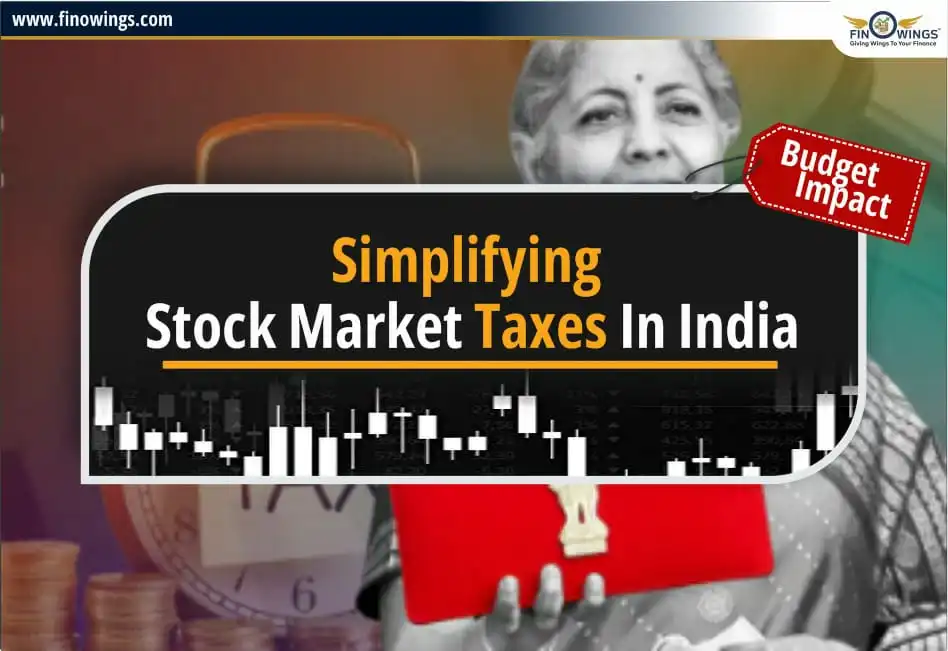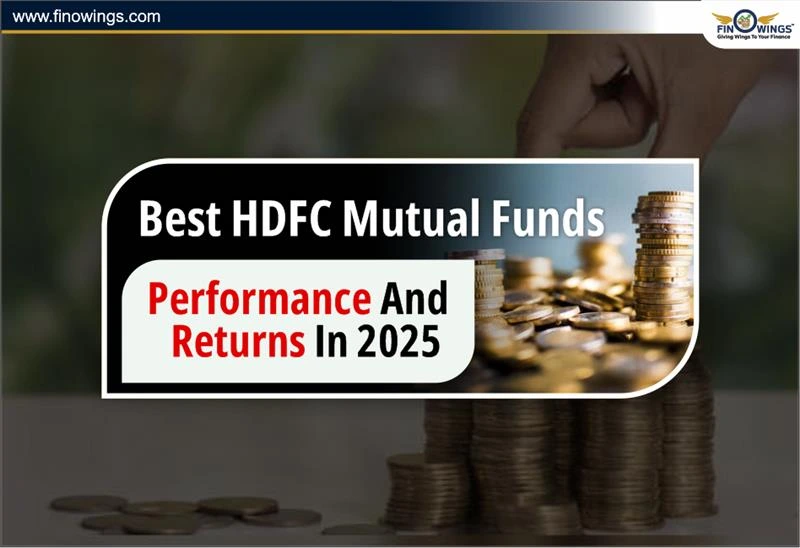Home >> Blog >> Budget Impact: Simplifying Stock Market Taxes in India
Budget Impact: Simplifying Stock Market Taxes in India

Table of Contents
Introduction to Stock Market Taxes
Taxes in the Stock Market are not unlike other taxes on various incomes. Taxes in the stock market are simply the deduction of some fixed amount of money from your capital gain during the selling of the share. For example, if you bought 1 share from any company at 20 Rs. and sold it to 100 Rs. then you would not get 100 Rs. as your capital but some lesser amount after tax deduction. Your tax deduction would be made on 80 Rs. as a capital gain difference. There are mainly 2 types of taxes in the stock market. One which is applied on income from stocks or let’s say equity. Another one is applicable on FnO transactions.
Types of Taxes on Stocks
Let’s dive into each of these taxes and understand what’s new in the budget.
Short Term Capital Gain (STCG) Tax
This tax is applicable on profits made within a year i.e short term capital gain. In old rate it was 15% and remains at 20% in new rate too- no change in this rate. STCG story is very simple- whatever profit you make within a year comes under this tax.
For example if you make Rs100 as profit then 20% i.e Rs20 will be deducted as tax…
Long Term Capital Gain (LTCG) Tax
This tax is levied only when profit is earned after holding shares for more than a year i.e long term capital gain. In old rate it was 10% and now in new rate it has increased to 12.12%. Also the exemption limit has been raised from Rs. 1 lakh to Rs. 1.25 lakhs.
So what this means is- if your profit is upto Rs. 1.25 lacs then you don’t have to give any tax on it because its exempted but if exceeds this limit than have to pay tax on extra profit.
Type of Tax on F&O
Security Transaction Charges (STT)
This tax has seen lot of changes- before it used to be 0.0125% while now they have increased it to 0.02%. In options segment old rate was 0.06% which is now increased upto 0.1%- so government is taking more money from these transactions.
For example if you buy something for Rs. 100 & sell it for Rs. 200 then STT will be calculated on transaction value, similarly if buy value was Rs. 10,00,000 & sell value is Rs. 20,00,000 then STT would be calculated accordingly…
Impact on Net Profit
Let’s understand how these changes affect your net profit- in old tax regime if ur net profit is Rs.9,97,527 then in new tax regime it will become Rs.9,96,902 i.e roughly Rs.625 has been taken away due to increased STT.
This sudden surge in STT implies that you have to put more effort in to reap the same level of gain, all of which the government readily bags.
Detailed Video:
Government’s Earnings from STT
From 2019 to 2023, Government revenue from STT has surged. STT is at a dangerous level now. The government’s data only shows earnings until September, which means there is more to come. This increase in STT is filling up the government’s coffers with your hard-earned money.
Understanding the Calculation
To understand how stock market taxes are calculated, let us take an example for this. If you bought something for Rs 100 and sold it for Rs 200, then STT would be charged on transaction value. Similarly if buy value was Rs 10,000 and sell value was Rs 20,000 then accordingly STT would be calculated.
So this example tells us how increased STT affects our net profit and how much money gets deducted by the government.
Conclusion
In conclusion of this blog post about new budget there have been significant changes made regarding taxes on stock market income. With increased rate of STCG,LTCG and STT it becomes necessary for everyone to know about these changes and plan their investments accordingly so as to get most out of them.Understanding these taxes can help you make better choices while investing thereby maximizing your profits.
If you still have any doubts or questions feel free write them down in comment section below .Also if you want to open demat account with us link is given in description.Do share this blog post among people so that they may get aware of new tax regime.
Disclaimer: This Stock Analysis is only for informational purposes and should not be considered as investment advice. Always do your research and consult with a financial advisor.


















